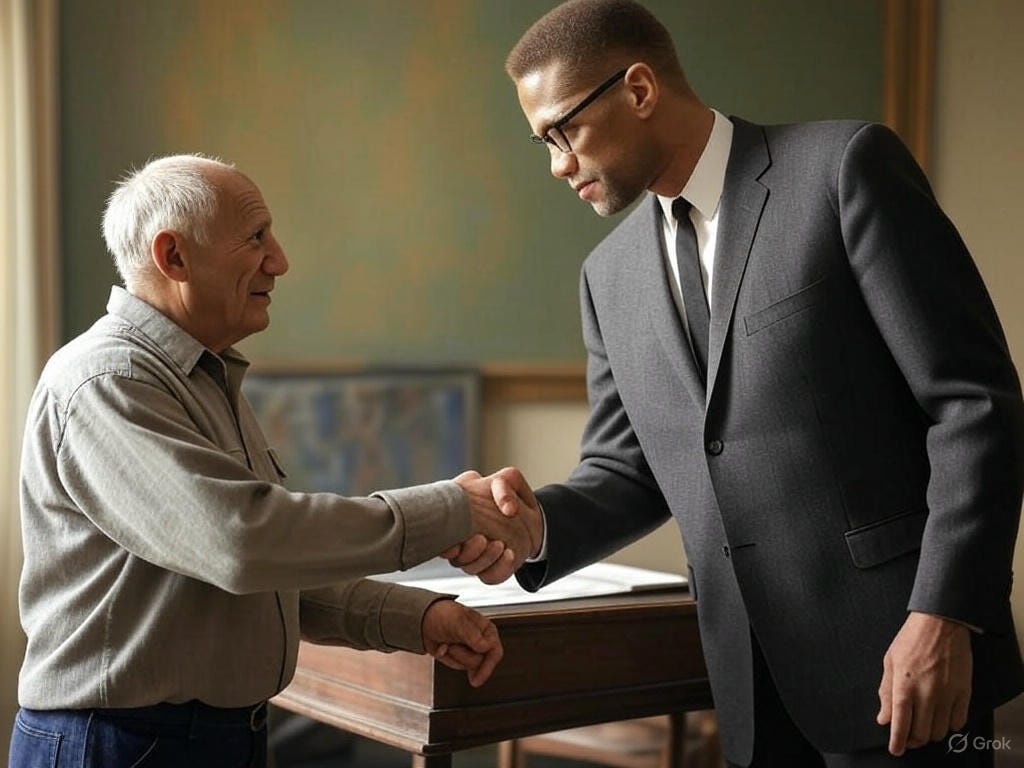There are five people whose talent and contributions to humanity I find almost impossible, each leaving a profound mark on the 20th century. My list, ranked in order, reflects not only their achievements but also the personal inspiration I draw from their lives.
#5 - Malcolm X, a civil rights leader and Black nationalist, transformed the fight for racial justice with his fiery oratory and evolving philosophy. He was first known for his role as a minister and spokesperson for the Nation of Islam (NOI), where he grew its membership and articulated a vision of Black self-reliance and pride, challenging white supremacy with unapologetic clarity. His autobiography, co-authored with Alex Haley, remains a seminal work, chronicling his journey from incarceration to global advocate, inspiring movements for Black empowerment worldwide.
After leaving the NOI in 1964, Malcolm X embraced Sunni Islam and a broader human rights perspective, founding the Organization of Afro-American Unity to unite Afr…
Keep reading with a 7-day free trial
Subscribe to So What to keep reading this post and get 7 days of free access to the full post archives.





